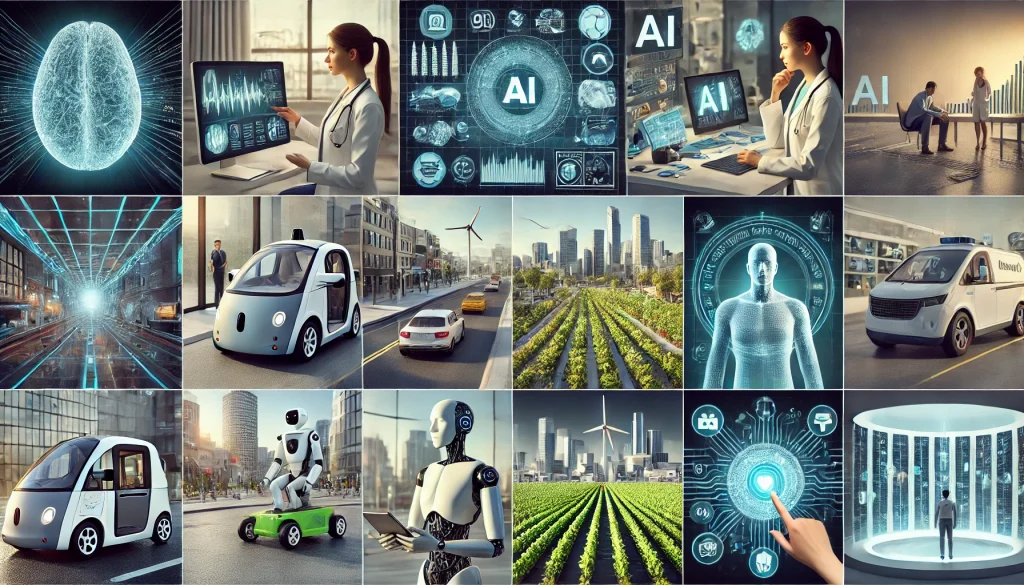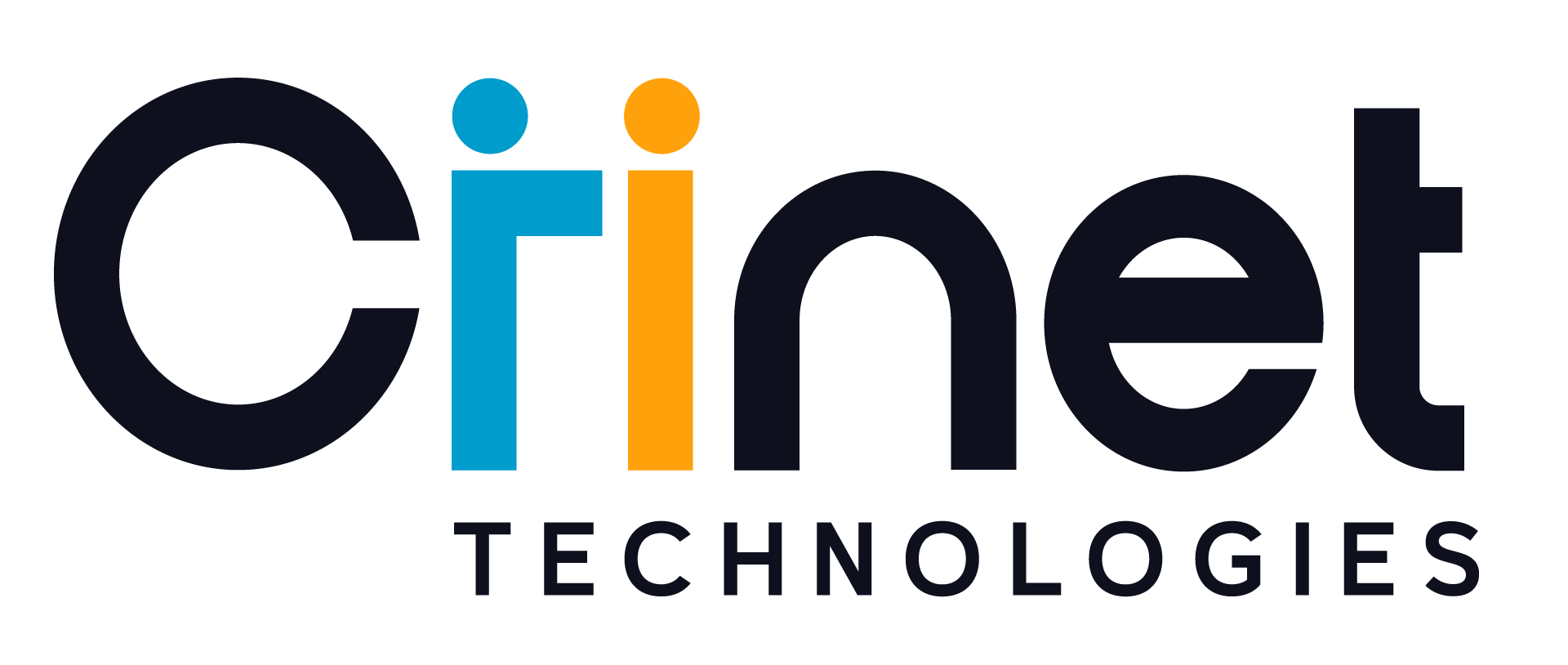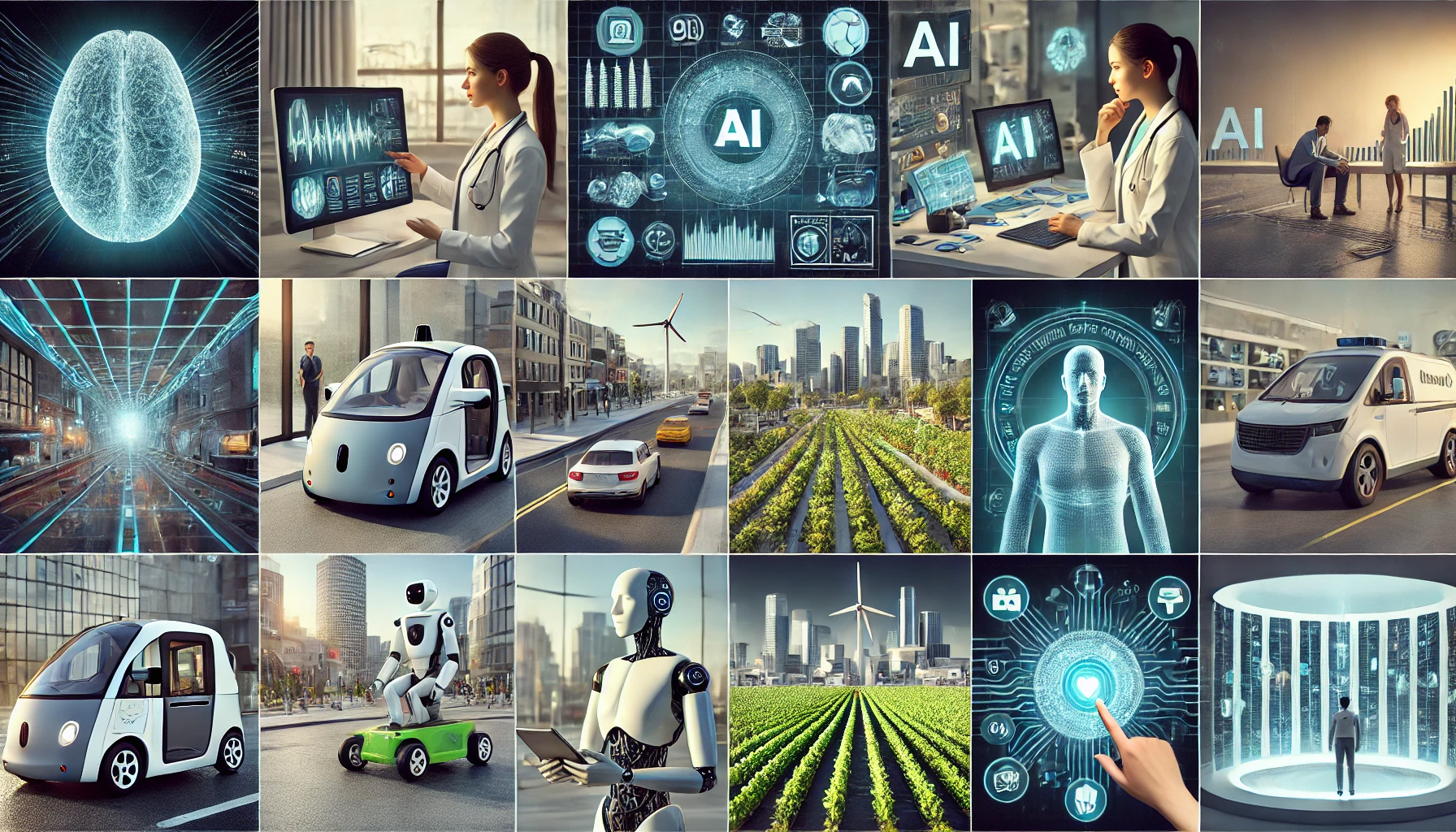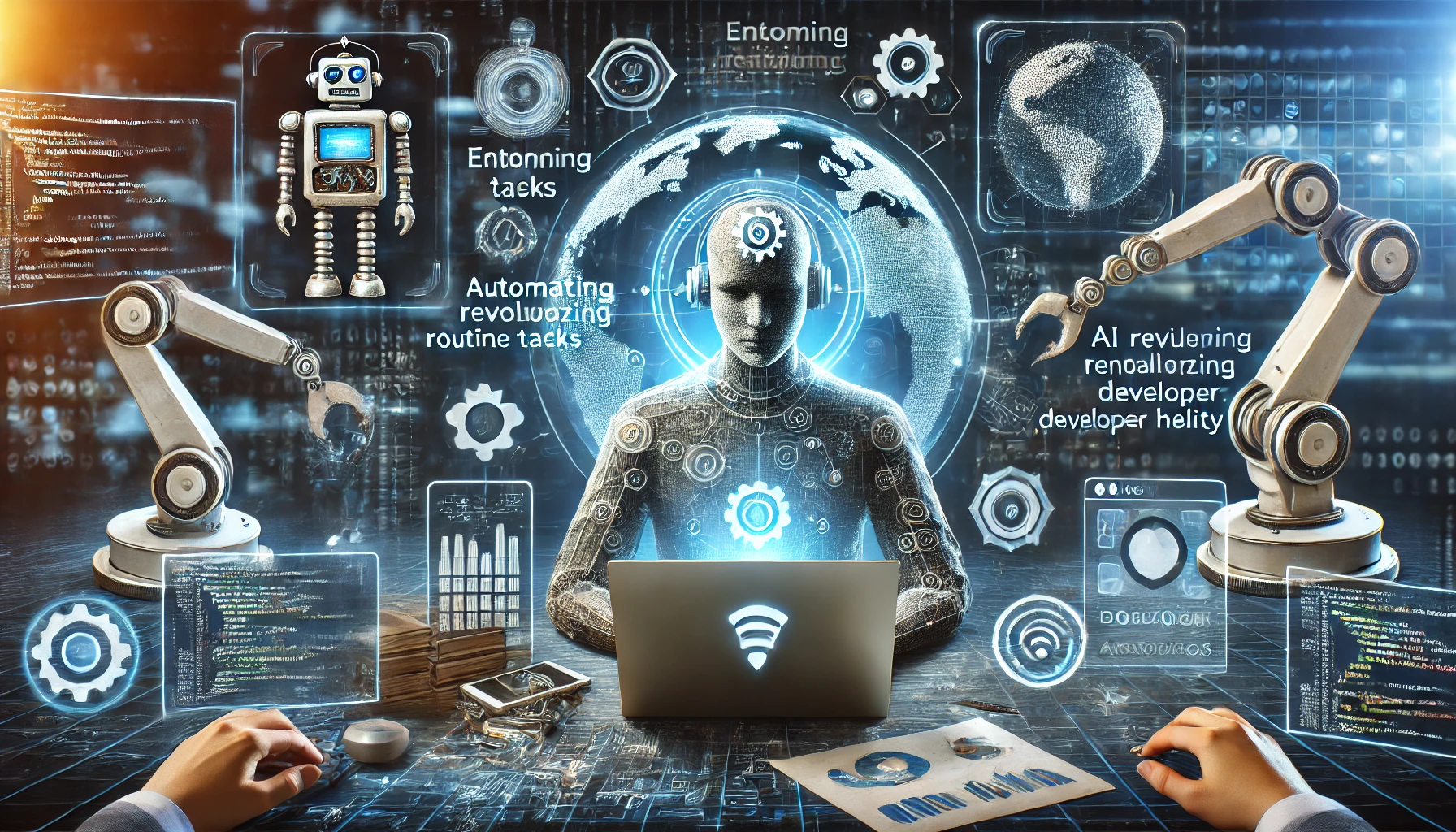The Impact of Artificial Intelligence (AI) in Real Life: A Deep Dive into AI’s Influence
Artificial Intelligence (AI) is no longer just a buzzword—it’s woven into the very fabric of our daily lives. As of 2024, AI has matured into a technology that drives innovation across industries, revolutionizing how we work, communicate, and interact with the world. Whether it’s automating repetitive tasks, personalizing user experiences, or unlocking new possibilities in healthcare and education, AI’s impact is undeniable. In this blog, we’ll explore how AI has shaped various facets of our lives, its most exciting applications, and what the future holds for this groundbreaking technology.
1. AI in Healthcare: Revolutionizing Diagnostics and Treatment
AI’s potential in healthcare has reached unprecedented heights in 2024. Machine learning algorithms and neural networks are now actively assisting healthcare professionals in diagnosing diseases with higher accuracy and at earlier stages. For example:
- AI-Powered Diagnostics: AI algorithms analyze medical images such as MRIs, X-rays, and CT scans to detect signs of diseases like cancer, heart conditions, and neurological disorders. These systems have achieved accuracy levels on par with human specialists, significantly reducing diagnostic errors.
- Drug Discovery and Personalized Medicine: AI accelerates the drug discovery process by analyzing molecular data to predict which compounds could be effective in treating diseases. Moreover, AI can now tailor personalized treatment plans by analyzing a patient’s genetic makeup, lifestyle, and environmental factors, making healthcare more precise and effective.
- Robotic Surgery: AI-assisted robotic systems now perform complex surgeries with extreme precision, reducing the margin for error and improving recovery times.
2. AI in Everyday Consumer Technology: From Smart Assistants to Personalized Shopping
AI has become a critical component of the technology we use every day, enhancing convenience and personalization like never before. Here’s how:
- Smart Assistants: Virtual assistants like Siri, Google Assistant, and Alexa have evolved into highly sophisticated conversational agents. In 2024, these AI-powered assistants understand context better, anticipate user needs, and can manage complex tasks like booking appointments, placing orders, and even controlling smart home systems.
- E-commerce and Personalized Shopping: AI algorithms now power recommendation engines that offer highly personalized shopping experiences. By analyzing past purchases, browsing history, and social media activity, AI suggests products tailored to individual tastes and needs. Moreover, AI-driven chatbots in customer support are offering instant assistance, improving the overall customer experience.
- Smart Devices and IoT: From AI-powered thermostats that optimize energy use to refrigerators that track food inventory, smart home devices are becoming more intuitive and capable, reducing waste and enhancing comfort.
3. AI in Autonomous Vehicles: Transforming Transportation
Autonomous vehicles (AVs) have been a hot topic for years, and as of 2024, AI has made significant strides toward making self-driving cars a commercial reality. The latest breakthroughs in AI-powered transportation include:
- Self-Driving Cars: Companies like Tesla, Waymo, and others have launched AVs capable of navigating through city streets, highways, and traffic, all while ensuring passenger safety. These vehicles rely on AI algorithms that process data from cameras, LIDAR, radar, and GPS to make real-time decisions and avoid obstacles.
- AI in Public Transport: AI-powered solutions have been integrated into public transportation systems, optimizing routes and schedules to reduce wait times and improve efficiency. Some cities are even experimenting with fully autonomous buses.
- Drone Deliveries: AI-powered drones are being used for last-mile deliveries, especially in hard-to-reach areas. Retailers like Amazon are already using AI to manage drone fleets for faster and more reliable deliveries.
4. AI in Finance: Enhancing Security, Trading, and Customer Experiences
The financial sector has long embraced AI, but in 2024, its role has expanded far beyond fraud detection and risk management. Key developments include:
- AI in Trading and Investment: AI algorithms now power a significant portion of stock market trades. AI-driven trading systems analyze market data, predict trends, and execute trades at lightning speed, outpacing human traders.
- Fraud Detection and Risk Management: AI systems in finance are highly effective at identifying suspicious transactions and mitigating risks. These systems continuously learn from new data to detect and prevent fraud in real-time.
- Personalized Financial Advice: AI-powered financial advisors provide personalized investment strategies and savings plans based on an individual’s financial history, goals, and risk tolerance. This has democratized access to high-quality financial advice.
5. AI in Education: Personalizing Learning Experiences
Education has seen a significant transformation, thanks to AI’s ability to create personalized learning environments. Here are some notable applications:
- Adaptive Learning Systems: AI-powered educational platforms assess a student’s strengths and weaknesses in real-time, adjusting the curriculum to meet individual needs. By offering customized learning paths, AI ensures that students progress at their own pace, maximizing retention and engagement.
- Automated Grading and Assessment: AI tools now assist educators by grading assignments, quizzes, and exams with high accuracy. These systems can analyze written essays for structure, grammar, and content, freeing teachers to focus on providing more personalized feedback.
- AI Tutors: Virtual AI tutors are available 24/7, helping students with difficult concepts, answering questions, and even offering practice problems. This creates a more interactive and engaging learning environment, especially in remote education settings.
6. AI in Agriculture: Maximizing Efficiency and Sustainability
AI’s application in agriculture is helping farmers optimize resource use and increase yields while minimizing environmental impact. Innovations in this sector include:
- Precision Farming: AI-powered drones and sensors are now used to monitor crops and soil conditions in real-time. This data is then analyzed to determine the optimal use of water, fertilizers, and pesticides, reducing waste and improving crop yields.
- AI in Livestock Management: AI systems are also being used to monitor the health and well-being of livestock. By analyzing data from wearable devices, farmers can detect early signs of illness and take preventive measures to ensure animal health.
- Autonomous Farm Equipment: AI-powered tractors and harvesters can now operate autonomously, reducing labor costs and improving efficiency.
7. AI in Energy: Driving Sustainability and Efficiency
The energy sector is undergoing a massive transformation with the help of AI, as it works toward sustainability and efficiency:
AI in Renewable Energy: AI systems optimize the generation and distribution of renewable energy from sources like solar and wind. These systems predict weather patterns to improve energy generation and ensure consistent supply to the grid.
Smart Grids: AI is integral to the development of smart grids, which optimize energy distribution in real-time based on demand and supply, minimizing energy waste.
Energy Efficiency in Buildings: AI-powered energy management systems now regulate heating, cooling, and lighting in commercial and residential buildings, reducing energy consumption and promoting sustainability.
The Ethical Considerations and Future of AI
While AI brings about a wealth of benefits, it also raises important ethical questions. Concerns around data privacy, security, and the potential for AI to replace human jobs continue to be hotly debated. In 2024, governments and organizations are actively working on frameworks to ensure that AI is used responsibly and that its benefits are shared equitably.
Looking ahead, AI’s potential is limitless. We can expect further advancements in quantum computing, edge AI, and AI’s integration with emerging technologies like blockchain, augmented reality, and more. These developments will further embed AI into the very fabric of our lives, driving innovation and transforming industries in ways we can only begin to imagine.

Conclusion
As of October 2024, Artificial Intelligence is transforming nearly every aspect of our daily lives, from healthcare and education to transportation and finance. AI’s rapid evolution is not just shaping industries but also enhancing personal experiences, driving sustainability, and unlocking new levels of efficiency. As we continue to harness AI’s potential, it’s essential to remain mindful of its ethical implications to ensure it remains a force for good in society. Whether it’s simplifying everyday tasks, driving innovation, or solving complex global challenges, AI is undoubtedly one of the most transformative technologies of our time.
Feel free to reach out to us at Crinet Technologies LLP if you’re looking for innovative AI-driven solutions to elevate your business and stay ahead of the competition!




